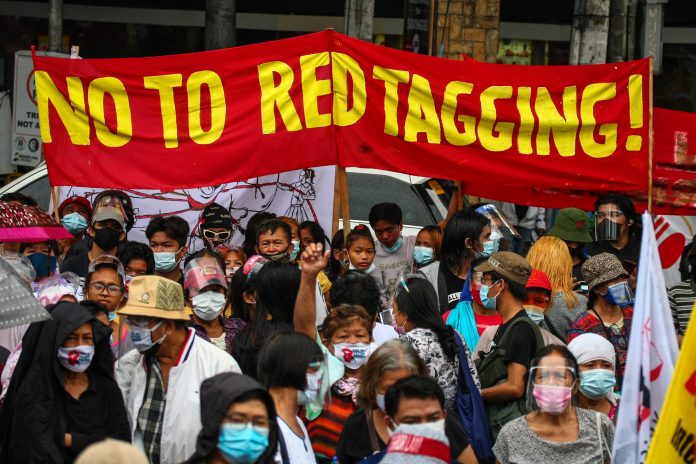The incoming national security adviser to president-elect Ferdinand Marcos Jr. says she intends to stop “red-tagging,” the longtime counterinsurgency tactic in which leftist activists and critics of the government are accused of being members of the communist movement.
“I would like to stop red-tagging,” Clarita Carlos, a former University of the Philippines professor, said on Friday. “Labels do not produce anything. It’s not productive.”
Carlos’s remarks suggest a critical reversal of a dangerous policy is being considered.
As national security adviser, Carlos will be vice chairperson of the National Task Force on Ending Local Armed Conflict, the government agency created by outgoing President Rodrigo Duterte. The task force, chaired by the president, has been responsible for much of the red-tagging since its inception in 2018.
The task force, working closely with the military, police, and the president’s office, has accused numerous political activists of being members of the Communist Party of the Philippines or its armed wing, the New People’s Army.
Among those red-tagged by the task force is outgoing Vice President Leni Robredo, who lost to Marcos in the recent election. The task force has also red-tagged journalists, book publishers, and nongovernmental groups including Oxfam.
Many red-tagged individuals such as leaders and lawyers of peasant organizations and human rights groups have been physically harmed by government security forces and vigilantes; several have been killed. Others were harassed, such as groups of nuns and peasant women whose bank accounts were frozen.
The task force’s “whole of nation” approach to ending the country’s 53-year-old communist insurgency has used as “proof” of its value past instances of some activists who later joined the armed insurgency. In practice, the Duterte government made little distinction between armed combatants and peaceful political activists who operate legally.
The United Nations has noted that red-tagging has a pernicious effect on civil society and democratic space in the Philippines.
Clarita Carlos should make good on her statement to finally end the practice. What remains uncertain is whether her new boss, and the Philippines armed forces, will allow her to do that once she is in office.
Carlos Conde is senior researcher of Human Rights Watch’s Asia Division









